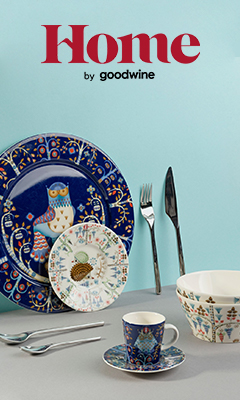Que ou quê?

What is the difference between que and o quê
QUE is followed by a noun. Remember that O QUE, on the other hand, is not followed by noun.
Cached
How do you say I love you in Brazil
To say “I love you” in Brazilian Portuguese, say eu te amo. Or better yet, drop the eu, as it's optional: te amo.
How do you use que in Portuguese
Um if you're making a comparison. Between things you can say. That. For example porto is bigger than coimbra. So here duke is gonna be the equivalent in english.
How do you use Porque in Portuguese
Porque simply means because. Porquê is more like a synonym of razão or motivo. You would use porquê when talking about the reason why something is the way it is.
Do I use qui or que
The short answer. At the beginning of a question, qui usually means “who” and que typically means “what”. This is what French learners typically think each word means. However, either word can mean “who” or “that”.
Should I say como or que
Cómo is generally used for "how" in questions and qué is generally used for "what" in questions.
What do I call my Brazilian girlfriend
Apart from “love”—the most commonly used, other pet names for a lover could be: amoreco (“beloved”), môre (“special”), fofo (“fluff”), fofinho (“cuddles”), minha vida (“my life”), meu bebê (“baby”), paixão (“passion”), coração (“heart”), xuxuzinho (“sweet pumpkin”), flor de maracujá (“passion flower”)…
How to flirt in Brazil
How To Flirt With A BrazilianDon't Hold Back. Without propping up gender stereotypes too much, it's often the case in Brazil that straight men will be the ones to approach straight women they're interested in.Go In For The Kiss.Enjoy The Flattery, But Don't Fall For It Completely.Be Attached At The Hip.
Do Portuguese say Oi or Ola
'Oi' literally just means 'hi' in Portuguese, and has no similarity to the dismissive and rude 'oi' in English. It is more informal than 'ola' that means 'hello' but it's used in almost every situations from in shops and on public transport, to greeting friends or business acquaintances.
Why do Spanish people say que
Spanish qué with an accent
Qué is used in both direct and indirect exclamatory and interrogative sentences, it is generally translated as what or how.
What is por qué and porque
Porque, as noted, is the subordinating conjunction “because.” Porqué with an accent marking the second syllable is a noun meaning “reason” or “motive.” Por que as two words, no accent markings, means “why” (e.g., ¿Por que estas triste or Why are you sad).
Can por qué mean why
While porque translates to “because”, por que translates to “for which”, el porqué to “the reason” and por qué to “why”. It's obviously incredibly easy to change the whole meaning of a sentence with a single misplaced Spanish accent.
What is que and qui
The short answer. At the beginning of a question, qui usually means “who” and que typically means “what”. This is what French learners typically think each word means. However, either word can mean “who” or “that”. In fact, qui and que don't translate directly to any one English word.
What is the meaning of qui
pronoun. who [pronoun] (used as the subject of a verb) what person(s)()
Why do people say que
However, just as in English, you can use “what” in different ways. In Spanish, you can also use this version of que in different situations. Most times, when que means “what,” it's part of a question or exclamation and, as such, should be written with an accent.
What is the rule of que
Que can also be a person, creature, or thing, but it replaces the direct object in a sentence. You typically know to use que when the word will be followed by anything other than a conjugated verb.
How to flirt with a Brazilian
How To Flirt With A BrazilianDon't Hold Back. Without propping up gender stereotypes too much, it's often the case in Brazil that straight men will be the ones to approach straight women they're interested in.Go In For The Kiss.Enjoy The Flattery, But Don't Fall For It Completely.Be Attached At The Hip.
How to tell a Brazilian girl shes beautiful
Here are some phrases you can remember:Você é linda/lindo. (“You are beautiful/handsome.”)Que bonita(o) está hoje. (“You look good today.”)Você tem um sorriso lindo. (“You have a beautiful smile.”)Você é muito charmoso(a). (“You're very charming.”)Você é estiloso(a). (“You're stylish.”)Que gatinho(a)!
How to flirt with a girl in Brazil
How To Flirt With A BrazilianDon't Hold Back. Without propping up gender stereotypes too much, it's often the case in Brazil that straight men will be the ones to approach straight women they're interested in.Go In For The Kiss.Enjoy The Flattery, But Don't Fall For It Completely.Be Attached At The Hip.
Why do Brazilians say oi
'Oi' literally just means 'hi' in Portuguese, and has no similarity to the dismissive and rude 'oi' in English. It is more informal than 'ola' that means 'hello' but it's used in almost every situations from in shops and on public transport, to greeting friends or business acquaintances.
How do the Portuguese greet
Common verbal greetings include 'olá' ('hello'), 'bom dia' ('good day'), 'boa tarde' ('good afternoon') and 'boa noite' ('good evening' or 'good night').
What is the meaning of que
“what
Qué is also a Spanish word that means “what.” That is not, however, the word that many people are looking for when they look up que in our dictionary. Que is homophonous with a number of other words, most of which have wildly different spellings and meanings.
What are examples of por qué
Take a look at the following examples: ¿Por qué has venido (Why have you come) ¿Por qué no comes pizza (Why don't you eat pizza) ¿Por qué te vas (Why are you leaving)
What do both Qúe and Cuál mean
The interrogative pronoun '¿Cuál ' is used in personal and general information questions, and '¿Qué ' is used in definition questions.
Is Qué Pasa formal or informal
Informal
Secondary Greeting / Checking In
| Spanish | English equivalent | Formality |
|---|---|---|
| ¿Qué pasa | What's happening | Informal |
| ¿Cómo va tu día | How is your day going | Informal |
| ¿Qué tal | What's up | Informal |
| ¿Dónde has estado | Where have you been | Informal |



0 Comments